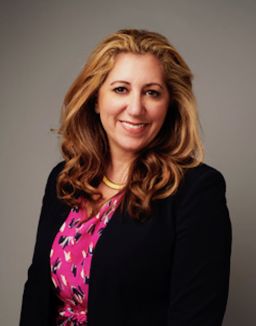Editor’s Note: Joey Jackson is a legal analyst for CNN and HLN and the founder of New York-based Joey Jackson Law, PLLC, The J. Jackson Firm. Diana Florence served as an assistant district attorney in Manhattan for 25 years and headed the Construction Fraud Task Force, prosecuting corporations for wage theft, lethal and unsafe work conditions, and large-scale frauds. The views expressed in this commentary are their own. Read more opinion on CNN.
On May 25, a video went viral of a White woman calling the police on a Black man in Central Park after he asked her to follow the rules and leash her dog. On her call to 911, she allegedly lied, claiming he was threatening her, and specifically emphasized his race as part of her report.


In the days and weeks that followed, the name Amy Cooper became synonymous with the kind of racist, false 911 call often made by White women that can have catastrophic consequences for the Black person on the other end. Within 24 hours, Cooper faced swift retribution online and lost her job. (Amy Cooper later apologized for her action and the birder, Christian Cooper, told CNN “if it’s genuine and if she plans on keeping her dog on a leash in the Ramble going forward, then we have no issues with each other.”)
But until Monday, when Manhattan District Attorney Cyrus Vance announced that Amy Cooper was being charged with falsely reporting an incident in the third degree, the one repercussion she avoided was criminal prosecution.
It’s been more than six weeks since Amy Cooper cried wolf. Why is she only now being charged for what appeared to be a very public crime?
Making a false report to 911 is a crime in New York and most states. It’s also against New York’s civil rights law and comes with penalties. Over the past few years, we have become increasingly familiar with this specific kind of false reporting. Whether it’s a Black person birding in Central Park, enjoying a barbecue, getting coffee at a Starbucks, working as a home inspector, shopping at Nordstrom Rack, or sleeping in the common room of their own dorm. The list is endless. What we see is a disturbing trend, and not one that typically ends with the caller facing criminal prosecution for putting a Black person in harm’s way.
Writing as a Black man, it is obvious that these calls are racially motivated. And writing as a White woman, it must be said that it is our responsibility to stop using the state as our personal security force. But where is the incentive for that when there’s seldom any consequence? The White woman who accused 14-year-old Emmett Till of whistling at her in 1955 – resulting in a famously brutal lynching – recanted her testimony two years ago and no one was ever brought to justice.
It’s not just White women, though. In Georgia, two White men (who happened to be connected with law enforcement) called 911 and then hunted down Ahmaud Arbery. Authorities say they shot and killed a man in broad daylight for essentially jogging while Black, yet it took prosecutors 74 days and immense public pressure to finally charge them.
If we truly want to stop White people from calling the police on Black people for just going about their lives, district attorneys need to start by actually prosecuting this kind of crime when it occurs, not six weeks later. The existing penal code is already clear, but New York and California lawmakers have also introduced legislation that would allow prosecutors to classify race-based, false reporting calls as a hate crime.
As a former prosecutor and a practicing defense attorney, we both understand the likely reality of justice delayed in Amy Cooper’s case. Our justice system has a long history of ignoring or downplaying the crimes of White people, from bailing out the heads of the financial industry who brought about the 2008 housing crash to the so-called “Karens” who police public space. At the same time, as we have both seen firsthand, our system often aggressively punishes and trumps up charges against Black and brown people. While we need sweeping changes to address these inequalities, district attorneys – because of their power and prosecutorial discretion – have the power, right now, to start leveling the scales.
At its core, the job of district attorneys is to prosecute cases on behalf of their county. They decide which charges to bring and what evidence to provide in those cases. This means the DAs have incredible power to shape what reform looks like. We need progressive district attorneys across the country who are willing to institute policies to protect Black and brown people from mass incarceration. District attorneys who will decline to prosecute low-level offenses against people of color and end cash bail that poorer people cannot pay; who will replace laws and practices rooted in racism with effective reforms that can reverse some of the most damaging effects of the past few decades of tough-on-crime policies. But at the same time, it is the job of those same district attorneys to take seriously the crimes that stem directly from the racism in our system.
Crimes that may seem minor, like calling the police on a man in the park, can have disastrous consequences. As we well know, calling 911 can result in the loss of innocent Black lives like Rayshard Brooks in Atlanta, and could have ended Central Park birder Christian Cooper’s, too.
It’s time to stop giving the Karens of the world a pass.

